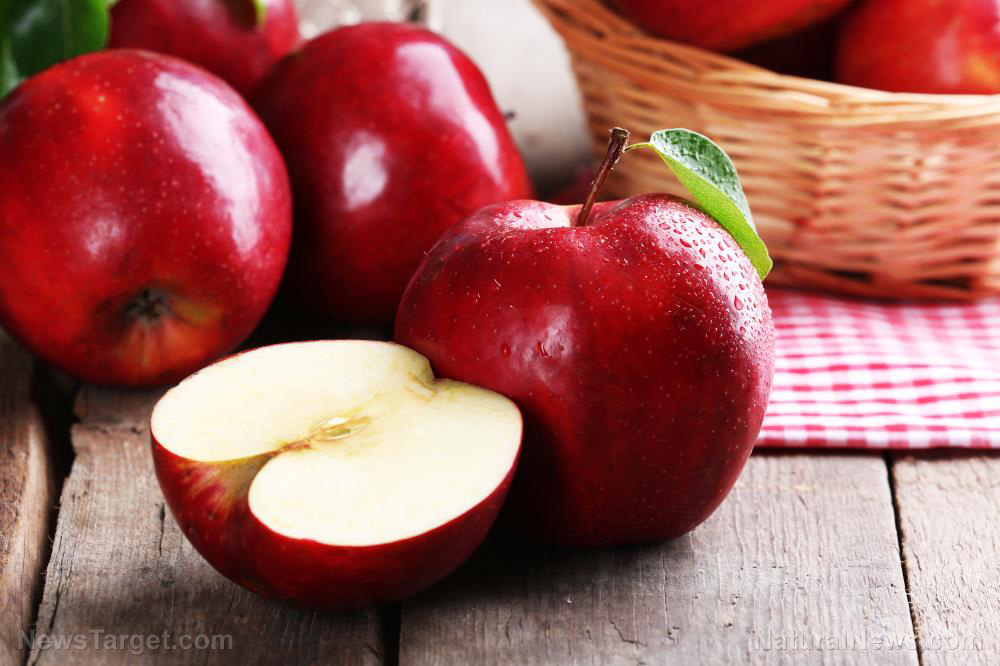by Melissa Smith
The old saying is indeed true: “An apple a day keeps the doctor away.”
Many studies have explored the health benefits of apples. Here are just some evidence-based health benefits you can get from eating an apple:
- It can ward off cancers.Various studies examined the anti-cancer potential of apples. For example, a case-control study published in the Reviews on Environmental Health revealed that eating apples reduced the risk of colorectal cancer. Another study, which was published in the Journal of Agricultural and Food Chemistry, identified 12 triterpenoid compounds in apple peels that inhibited the spread of — or completely killed — various cancer cells, including liver, colon, and breast cancer cells. (Related: Antioxidant-rich organic apple peels possess potent anti-cancer benefits).
- It aids in weight loss. You can add apples to your weight loss diet. A study on overweight women published in the journal Nutrition demonstrated that eating fruits like apples and pears every day for 12 weeks resulted in weight loss.
- It prevents atherosclerosis. Atherosclerosis, or the hardening of the arteries, can be prevented by eating apples or drinking apple juice. In an animal study published in the journal Nutrients, researchers found that polyphenols in apples prevented the formation of plaque within the arteries. Another animal study, which was published in the journal Lipids in Health and Disease, showed that drinking apple juice can prevent the progression of atherosclerosis induced by a high-fat diet because of its antioxidant and anti-inflammatory properties.
- It promotes hair growth. Apples can also be beneficial to people who suffer from hair loss. A study published in the journal Science of the Total Environment showed that a compound called procyanidin B-2 extracted from apples promoted hair growth in a cell model.
- It protects against advanced glycation end-products (AGEs). AGEs are harmful substances primarily linked to the oxidation of blood sugars, which become caramelized when exposed to oxidants. They then bind to cell structures, causing damage. A study published in the journal Phytochemistry reported that the leaves of apples exhibited potent anti-AGE activity.
- It protects against brain aging. Apples also have protective effects against brain aging. One study in aged mice revealed that apples prevented oxidative damage and impaired maze performance. Another mice study showed that consuming apple juice reduced the production of unhealthy amyloid-beta levels, which are linked to Alzheimer’s disease, in the mice’s brains.
- It supports oral health. Eating apples also promotes oral health and prevents diseases. A study published in the journal Phytotherapy Research revealed that the quercetin in apples exhibited antimicrobial effects on periodontal pathogens. Additionally, apple polyphenol also protects against periodontal ligament cell destruction associated with Porphyromonas gingivalis infection, according to a study published in the Journal of Periodontology.
- It treats diarrhea. A study published in the journal Arzneimittelforschung revealed that consuming apple pectin combined with chamomile shortened the course of diarrhea and relieved its associated symptoms.
Choose organic apples
Consuming apples will improve your health, given that they aren’t coated in toxic, cancer-causing pesticides and herbicides. It is worth noting that apples belong to the Environmental Working Group’s (EWG) Dirty Dozen list, which includes the produce with the most pesticides. Therefore, make sure that you’re consuming organic apples.



